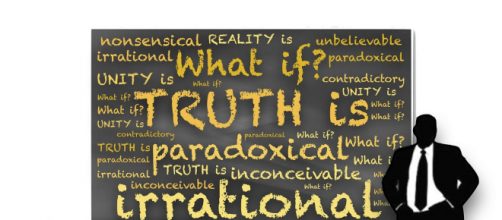mystery is, according to Triadic Philosophy, the correct term for the vast bulk of everything we encounter near and far. It does not apply merely to the unknown reaches of space. Nor is it the uncovered areas of recorded history and all the millennia that preceded it back to our microbial beginnings. It as close as our minds, our hearts, our very being.
We make a fetish of knowing much more than we actually grasp with our senses. I do not know that much about the keys I am typing on or the composition of the air outside my window.
Example
Here’s an example of a mystery.
We know our bodies are miraculous. Anything that moves is miraculous. The reason is a mystery. We do not know why there is anything. We are occupied with things about which most of our conclusions are what Wittgenstein called nonsense. Nonsense was his word for the most important things of all.
The why things.
The lesson of mystery is that we should practice a bit of humility. There is always a "why" past any explanation. Our conclusions are never final.
Getting to clarity
The answer to the conundrum of mystery is acceptance, even embrace. To accept mystery is equally advantageous for the spiritual and the secular. All matters that dance seductively at the edge of our speculations are enveloped in the same vagueness.
We can only achieve clarity by guessing from our experience what is good and what is not good. The realities for us when we try to plumb reality are what enhances and what destroys, Clarity is our visceral sense of how things actually are.
Asking why
Asking why is perhaps the heart of wisdom. What we know is always less than can be known. What we know can always be amended. Why do we rate gun violence as more serious than car violence or mosquito violence? Quick answers are may usually be efforts to suppress the anxiety not knowing creates.
The power of presumption
In Triadic Philosophy, mystery’s importance is that it places epistemology in a bit of a bind. How we know has huge limits. Most conclusions are not so much false as speculative.
Presumption rules. Comedy is a tacit gloss on our general ignorance.
The positive take on this is that we learn to see what is a mystery and concede its omnipresence. We are relieved at the thought that “I don’t know” is a reasonable answer to many questions. And “Why?” is never out of place.
The philosophy that embraces mystery as an essential element of reality is a bit more honest than philosophies about everything.


